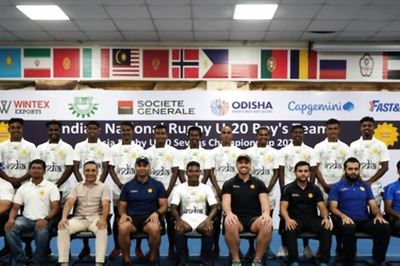
views
The Signature Bridge inaugurated by the Arvind Kejriwal government a day before Dhanteras came with the fireworks generally reserved for Diwali. The bad air engulfing the city has had its ill effect on the city’s political culture, known so far for dialogue and mutual respect between political rivals. The Sunday evening incident sounded the last bugle to such engagements where a city-level Congress leader could walk up to BJP’s tallest leader with a complaint against his party men.
The Signature Bridge inaugural, and the two inaugurations before that of the Rani Jhansi flyover and the ITO Skywalk, made news not for the engineering marvel being given to the city but for the bitter political talk. Both Delhi chief minister Arvind Kejriwal and Delhi BJP president Manoj Tiwari, or for that matter Centre’s designated Minister for Delhi Hardeep Singh Puri in his capacity as the incharge of Urban Development, have little to with the completion of these projects.
They are like the railway gatemen who stand with a flag when a train — in whose running they don’t have much of a role — comes to a particular gate at a given time. Destiny ordained that they would be holding respective chairs when these facilities are inaugurated, so they were there inaugurating them. While the stone plaques bearing their names would fade with time, history would recall the ruckus these inaugurations created.
Like the other two projects, Signature Bridge too was conceptualised during the 15-year regime of Sheila Dikshit and ‘almost built’ during the last lap of her tenure. Unfortunately, it got delayed as several other projects, which were part of the legacy of the Commonwealth Games, were put under the scanner. The Delhi government came out clean on most of the work, which was undertaken by it for the Games, but it nevertheless broke the momentum of development.
Politics in Delhi has never been so bad, as demonstrated by Messers Arvind Kejriwal and Manoj Tiwari last Sunday. They behaved the way they did because they are not part of Delhi’s political culture. Tiwari, a recent migrant to the BJP, was foisted first as party candidate for the Lok Sabha polls and later as the head of the state unit as face of the Poorvanchal voters, ahead of several time-tested leaders.
Kejriwal knows the city culture or politics as much as does his Sunday evening’s rival pugilist Manoj Tiwari.
Delhi’s politics was where an Atal Bihari Vajpayee as Prime Minister could felicitate the retired grand old Delhi Congressman Jag Pravesh Chandra with Padma Vibhushan for public service. Not what we witness today.
Sometime in the early 1990s, when the BJP was in power in Delhi, assembly Speaker Chartilal Goel had become very annoyed with three overexcited young Congress MLAs which included present-day Delhi Congress chief Ajay Maken. Goel decided to terminate their membership. Senior Congress leader and former executive councilor Jag Pravesh’s pleadings were not of any avail.
Bewildered at Goel’s move, which was not wholeheartedly supported even by then chief minister Madanlal Khurana, Chandra took the three to Vajpayee, who was then the leader of opposition in Lok Sabha. Chandra told Vajpayee that he was presenting the case of one leader of opposition to another. Vajpayee said in such matters, he could not be with the treasury benches and telephoned his friend Goel, counseling him to drop the move.
In this era and time, such dialogues between leaders of two rival parties sound so utopian. During the last assembly session of the 2003-08 term, then chief minister Sheila Dikshit had invited all legislators for a farewell lunch. Dr Harsh Vardhan was sitting across Dikshit on the dining table. He complimented her for the hospitality, to which Dikshit said if during the next session she was on the other side, she expected the same generosity. Everyone present had a hearty laugh.
Despite being a very tough rival and hard at making political bargains, Khurana maintained a decorum in his dealings with Dikshit which behooved a gentleman. There are several tales of similar healthy political rivalry among leaders. Unfortunately, the dialogue of bonhomie has got lost in the quagmire of present-day politics, which has led to Delhi becoming a social and geographical cesspool infected with diseases, sewer deaths, poor transport, bad air, lack of employment and complete stagnation in development activities.
The blame for the present-day situation largely lies at the doors of the BJP. The AAP leaders are understandably behaving like political upstarts but the BJP leadership, with all the seven Lok Sabha seats in its pocket, should have shown more maturity and political fineness in dealing with the situation. Even initiatives, like the one taken by Union Environment Minister Dr Harsh Vardhan to fight the bad air, comes to a naught.
The absence of Environment Ministers of the BJP-ruled states of Haryana and Uttar Pradesh ends up doing more damage to the image of the party than any ‘brawny’ points Tiwari would have won by flexing his muscles. He would have done better by drawing a roadmap with the help of his party’s other MPs from the six other constituencies in the city.
Unfortunately, the BJP MPs of Delhi have seldom made it to the news headlines in the past four-and-a-half years regarding matters of development and betterment of the living conditions in the city.
(The writer is a senior journalist and political columnist)


















Comments
0 comment